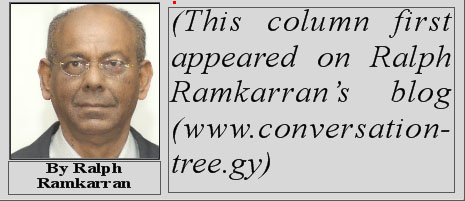If the PPP/C is returned with only a plurality of the votes at the upcoming elections as in 2011, it could adopt the sensible course of inviting the opposition to join it in a coalition government. The PPP would be mindful of recent, salutary, experience in Sweden. The centre-left, minority, government of two months was forced to resign in early December because it did not get the support of the far right, Sweden Democrats, who wanted immigration to be further restricted. Also, a further gridlock is unlikely to be sustainable for more than a year this time around.
The PPP would, of course, like any other party obtaining a plurality, like to be in the majority in a coalition and may invite only one of the opposition parties to join a coalition. The obvious consideration in opposition strategy, if an invitation is forthcoming, is to ensure that it will have the same majority as it would have had in opposition. To avoid being in a minority, the opposition party may well insist that the other opposition party, its colleague over the past three years, be also invited to join which would give the opposition a majority in the coalition. A breakdown in the negotiations at this early stage may well lead to the Swedish Option.
Having faced gridlock and frustration over the past three years, the political parties might all be looking to a new approach, difficult as this may be for the PPP. But the reality of an even more truncated lifespan for another minority government might be the incentive to propel the PPP in a different direction this time around. The PPP is then likely to

